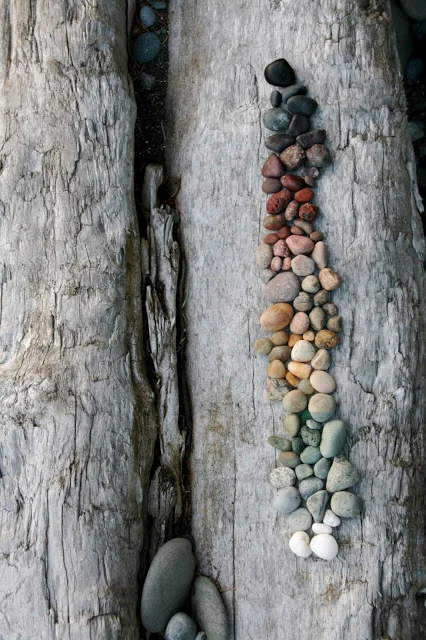Camping on the Washington coast
A highlight of our Summer is spending a long weekend camping on the Washington coast. It is rural, rugged and teaming with both sea and wildlife. Many an afternoon may be spent watching bald eagles fly overhead or exploring tide pools. Summer is such a fantastic time to live in Washington state that we try to limit all our out of state travel during those precious several months of Summer. In the Summer there is nowhere we would rather be than hiking familiar trails and camping amongst the starry clear skies.
When we camp on the beach we typically backpack about 2.5 miles along the coast before we set up camp. We try to limit the weight of our packs by bringing freeze dried food, but we also make sure to bring along a few healthy servings of fruit and vegetables. The first afternoon we will eat our most perishable items like hotdogs and then keep our menu simple by eating soup, freeze dried meals, granola and smores for dessert the rest of the time. We usually camp for two nights on the coast, which is long enough to make the trip worthwhile, but short enough that we can forgo showering and do without bathrooms.
Preparing for your coastal camping trip:
1. Obtain backcountry permit. Stop at the Ranger station to pick up your backcountry permit ($13 for 2 people for 2 nights), bear can ($3 suggested donation) and tide chart (free). These are the three most important items you will have aside from your food and tent.
2. Use the tide chart as your guide. Plan your hikes around the tide chart. It is a lot easier to hike at low tide then at high tide. At high tide the route you might want to take could easily become impassable and cause you to take a detour over a bluff or delay your trip.
3. Don't forget about water. Bring a water filter or pack in extra water. In the early part of Summer there is fresh water which is easily accessible along the beach, but it will need to be purified. We have found the easiest way to remedy this problem is to bring a ceramic filter. A couple of times we have packed in extra water, but packing so much extra weight can feel back breaking and makes the trek along the beach pretty miserable.
4. Bring clothes for sleeping. Since you will most likely be building a fire to keep warm and/or cook some of your food it is a good idea to bring clothes which you reserve for sleeping. This way your tent and sleeping bag do not smell like a fire pit and it is an easy way to feel a bit cleaner during the night.
5. Bring entertainment. Camping on the beach can be as slow or fast paced as you want. We typically bring card games to pass the time at night or when we are caught in a sudden rain storm and need to retreat to our tent.
6. Do your research ahead of time on food. Freeze dried meals need not be gross. Through trial and error we have come to find some of our favorite meals and stick to those. This is a simple breakfast of granola, milk and fresh blueberries. Sure freeze dried milk is not as appealing as fresh, but it sure beats dry granola.
6. Reserve a special treat just for camping. We hardly ever eat smores or hotdogs unless we are camping. It is fun to reserve certain foods for certain activities. I am not a big fan of hot dogs, but after a long hike I don't mind eating one once or twice a year.
7. Pack your camera. The biggest reason we like to camp on the coast is for the dramatic scenery. Make sure to pack a camera, sketchpad or iPhone to document the changing light and scenery. I realize it is a little extra weight, but it is well worth it.
8. Learn to appreciate modern conveniences. Backcountry camping requires you to slow down and appreciate the modern conveniences of home. Out there we have to work hard to filter our water, which makes us grateful for our plentiful and easy access to fresh water at home.
9. Be a good neighbor. Be respectful of your neighbors. Just like at home, there might be a rowdy neighbor who likes to stay up late, play loud music or laugh excessively loud. Don't be that person. Remember to pack out all your trash and don't do anything which will diminish another's enjoyment of nature. We were camping over the Fourth of July and wanted to be festive without being obnoxious, so we brought a small package of sparklers and had a fun time snapping photos and drawing in the night sky with them. Without fail someone always brings roman candles and decides to make quite the scene.
Here are some other fun reads about beach camping and the beach in general:
Highlights of our time spent at the beach
The slow pace of life on the beach































